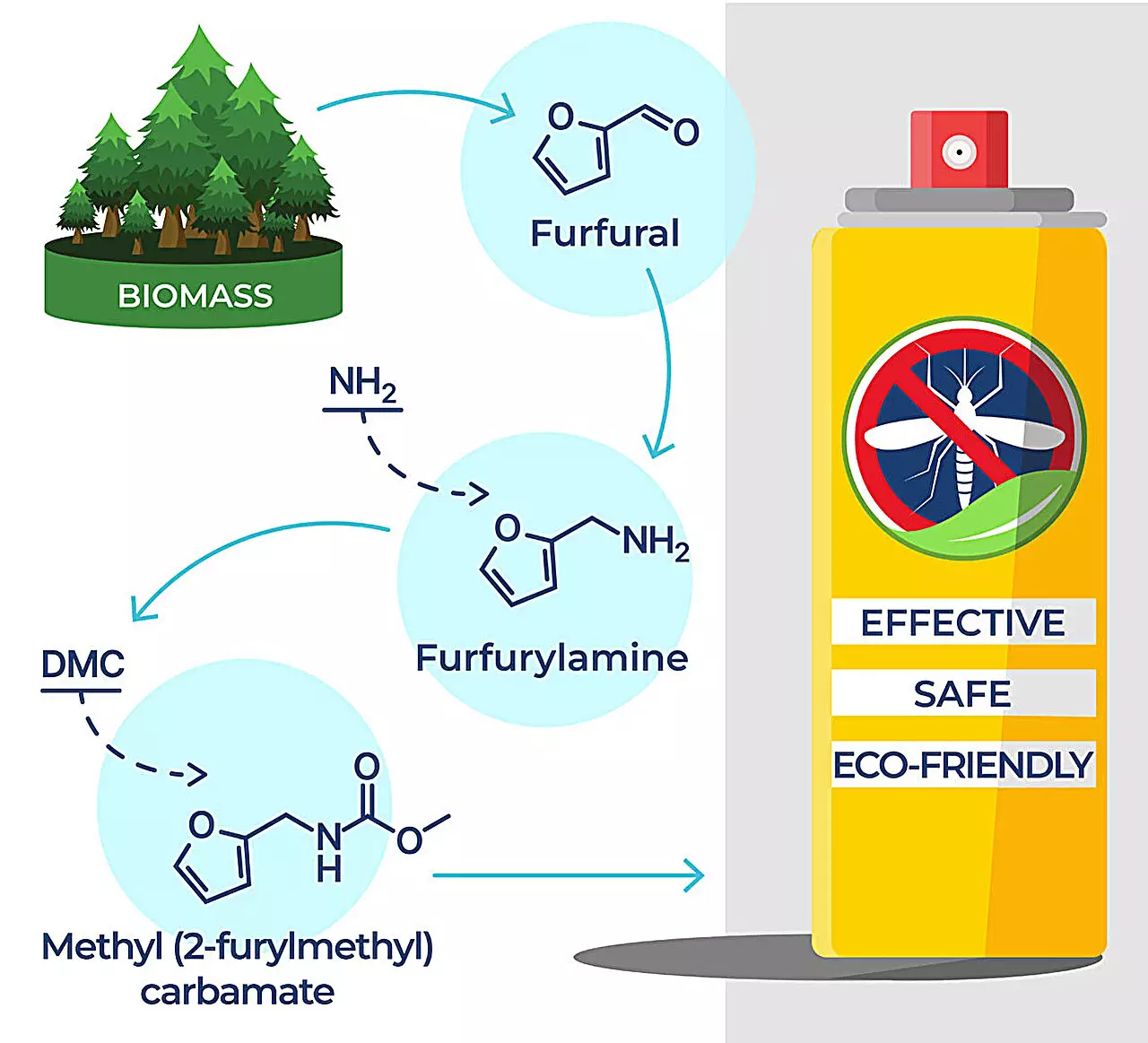The quest for more environmentally responsible agricultural methods has reached a pivotal moment, thanks to groundbreaking research from the University of Delaware (UD). With the global population expected to surpass 8.2 billion by 2024, the demand for effective agricultural solutions has never been more urgent. The challenge lies not just in producing sufficient food, but in doing so in a way that minimizes ecological damage. Conventional pesticides have been a staple in crop protection; however, their broad-spectrum activity often leads to unintended harm to non-target species, including beneficial insects and other vital components of the ecosystem. This conundrum has motivated a dedicated team of researchers at UD to explore alternatives that not only mitigate ecological impacts but also utilize sustainable resources.
The research, led by Professors Dion Vlachos and Michael Crossley, has birthed a new class of insecticides derived from biomass materials typically considered waste. This includes components such as wood pulp, straw, and corncobs, exemplifying the principles of sustainability and circular resource use. By synthesizing active ingredients that are specifically designed to target pests, the researchers have entered uncharted territory in the realm of pesticide development. Their findings, published in the scientific journal ChemSusChem, reveal that the team successfully engineered bio-based pesticide molecules capable of delivering comparable effectiveness to traditional insecticides while maintaining a commitment to ecological safety.
The method centers around utilizing commercially available plant-based atoms to create novel chemical compounds through a process known as grafting. These “bridging molecules” serve as intermediaries between traditional toxic pest control solutions and more sustainable strategies, addressing a pressing need for safer chemicals in agriculture. As Sunitha Sadula, a key member of the research team, emphasizes, the ultimate goal is to rid our food systems, water supplies, and natural habitats of harmful chemicals.
To assess the efficacy of the newly synthesized compounds, the research team focused on two separate molecules: vanillin and furfural. Vanillin, typically derived from lignin—a structural component of plants—was analyzed in conjunction with furfural, which comes from sugar molecules found in lignocellulosic biomass. These innovative compounds were subjected to rigorous testing, which revealed promising insecticidal properties akin to those offered by conventional insecticides.
In these tests, Michael Crossley employed the UD-developed molecules against the lesser mealworm beetle, demonstrating mortality rates comparable to those seen with traditional insecticides. He noted the potential for large-scale agricultural benefits, emphasizing how the molecular modifications allowed the researchers to create entirely new compounds with tailored properties for pest control. However, safeguarding beneficial insects, such as bees, remains a priority for further investigations to ensure that these eco-friendly pesticides do not inadvertently cause harm to essential species.
A Sustainable Approach to Pesticide Production
The significance of the UD team’s work extends beyond just creating effective pesticides; it also emphasizes sustainable production processes. Traditional pesticides often rely on fossil fuel-derived ingredients that carry known environmental risks. In contrast, the use of renewable biomass not only showcases ecological advantages but also appeals to economic considerations. A technoeconomic analysis indicated that the furfural-based compounds developed by the research team could be priced two to four times lower than many widely used commercial alternatives.
Furthermore, the UD researchers have implemented streamlined production processes, minimizing the involvement of toxic reagents typically present in conventional pesticide synthesis. This commitment to sustainability is a game-changer in terms of both ecological impact and economic viability for farmers.
One particularly exciting revelation from the research is the aquatic safety demonstrated by the furfural-based compounds. Unlike many traditional pesticides that may linger in the environment, the chemistry of these new molecules preferentially remains in water, which could facilitate the washing off of residues from crops, thereby enhancing food safety and consumer confidence.
Ultimately, the innovative methods leveraged by the University of Delaware team provide a roadmap for the agricultural sector to follow. Their approach of transforming waste into valuable pesticides not only fosters sustainable practices but also opens a broader dialogue about the necessity of developing greener alternatives in agriculture. The vision of creating ecologically sound products from what was once labeled “trash” has the potential to revolutionize the industry and lay the groundwork for more sustainable food production methods.
As this groundbreaking research continues to evolve, the implications for global agriculture could be profound. If adopted at scale, it could significantly minimize the reliance on harmful chemicals, ensuring a safer and healthier environment for generations to come.


Leave a Reply